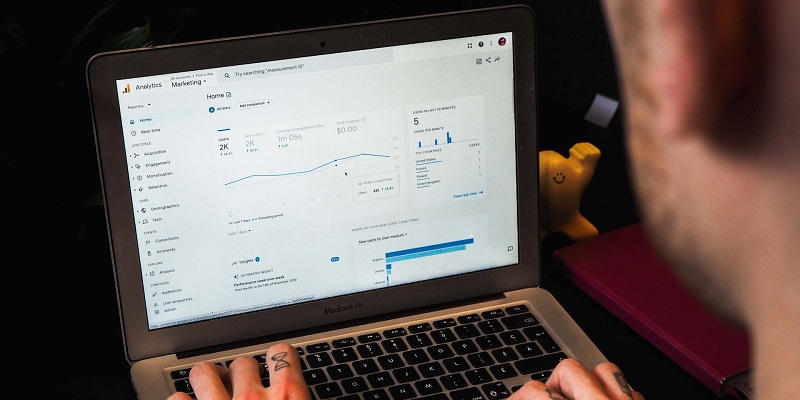The world of business is constantly evolving, and leaders are expected to stay on top of the latest trends to succeed. Today, data-driven decision-making is becoming increasingly important, and more companies are leveraging data as an important source of input in their decision-making. The role of data goes beyond just informing business decisions; it can also be a valuable tool for diversity, equity, and inclusion (DEI) efforts. In this article, we will take a closer look at the role of people analytics in driving DEI initiatives and discuss ways in which organizations can use data to promote lasting change.
The Importance of Integrated DEI Efforts
Fragmentation in DEI efforts can lead to ineffective or incomplete solutions. Initiatives aimed at promoting diversity, equity, and inclusion cannot be launched as separate “projects” or “initiatives.” They need to be integrated into the company’s culture and overall strategy.
Without this integration, there is a risk that efforts will be short-lived or disconnected from the company’s overall mission. It is essential to create a sense of accountability and purpose that is aligned with the business’s mission.
Leveraging People Analytics for DEI Metrics
People Analytics is the practice of using data to understand, manage and improve the human side of the enterprise. It can play a critical role in promoting DEI initiatives by providing accurate data that can guide investment decisions. By identifying, measuring, and reporting on DEI metrics, companies can better understand diversity in the workplace, and determine which initiatives to pursue. People Analytics can also play a role in guiding investment decisions for DEI initiatives. By using data to identify areas where DEI initiatives will have the most significant impact, leaders can ensure that they are using their resources effectively.
The Role of Data in Identifying Root Causes
Data plays a crucial role in identifying the root causes of issues related to diversity, equity, and inclusion. Without data, interventions may not yield the desired results. The use of data can help leaders identify patterns and trends that may not be obvious on the surface. By identifying the root cause, leaders can develop targeted solutions that are more likely to succeed. Accurate data collection is essential to inform decision-making and ensure the success of DEI initiatives.
Addressing the Challenge of Data Collection
One of the fundamental challenges that organizations face today in adopting a data-driven decision-making approach is the absence of data and its collection itself. Collection of data is essential to inform DEI initiatives. Organizations must identify and resolve the challenges that prevent the efficient collection of necessary data. The data collection process must be inclusive, and the methods used should not be biased. Organizations must also ensure that their data collection methods are secure and fully comply with privacy regulations.
Ensuring Pay Equity
Pay equity is an important aspect of DEI (diversity, equity, and inclusion) initiatives. It is essential to eliminate systemic bias and ensure that all employees are paid fairly, regardless of their gender, race, or any other characteristic. People analytics can play a critical role in identifying and addressing pay inequities by analyzing salary data and identifying patterns and trends that may indicate pay disparities. By taking a data-driven approach to pay equity, companies can ensure that they are treating all their employees fairly and equally.
Using polls and pulse checks for employee wellbeing is becoming increasingly important. Burnout, stress, and mental health issues can all impact employee performance, engagement, and retention. Polls and pulse checks can be beneficial for leaders to understand the current state of employee wellbeing and gain insights into how to improve it. This can help create a healthy work environment, reduce staff turnover, lower operating costs, and drive the performance of employees.
Providing Flexible Working Options
Data can help determine the needs of a diverse workforce and play a vital role in providing flexible working options to employees, enabling them to work in a comfortable, convenient, and efficient manner. Offering such options and creating a diverse and inclusive work environment can increase employee satisfaction, resulting in improved performance and better business outcomes.
Ensuring Unbiased Reward and Benefits Programs
Programs related to rewards and benefits must be free from bias and discrimination. People analytics can play a role in addressing biases and ensuring that rewards and benefits programs are equitable, especially for marginalized groups, including women and minorities. By taking a data-driven approach to rewards and benefits, companies can ensure that they provide employees with fair and equitable treatment.
Collecting workforce data is essential to measure the impact of DEI initiatives. This data provides a full picture of the diversity in the organization’s workforce, which can be analyzed to understand how well the DEI initiatives are resonating with the employees. The analysis can identify any gaps in the effectiveness of the interventions. Leaders must use this data to identify barriers and address them to drive long-term sustainable change.

